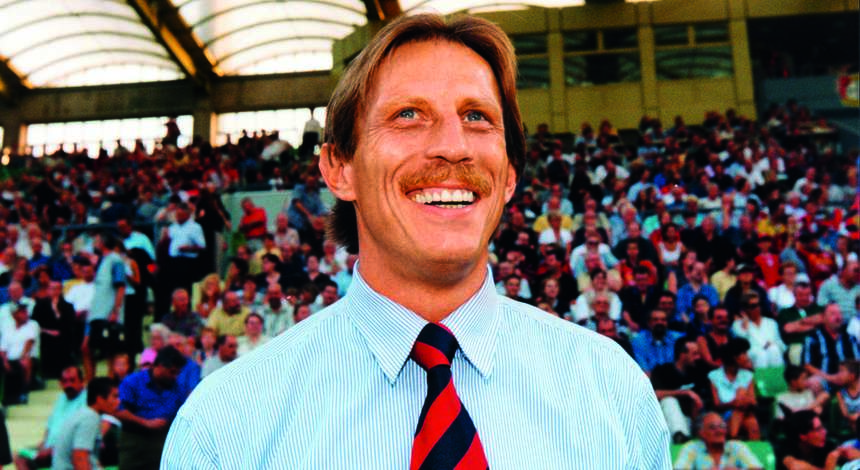
Carro and Völler congratulate Daum
Fernando Carro, Bayer 04 CEO, said: “I’m very interested in the history of Bayer 04 Leverkusen and Christoph Daum is a really important part of the history of our club. He gave an emotional boost to Bayer 04 like no other. I remember clearly the celebrations of our 40 years in the Bundesliga when I was able to witness his address as a coach ahead of the game involving our legends from back then. That was simply brilliant exactly as were the many conversations we have had since then where we don’t just talk to each other about sport. Many happy returns from me to the successful coach who not only made a huge impression on German football.”
Rudi Völler, whose membership of the shareholders committee at Bayer 04 currently based on his activities with the DFB, said regarding the birthday: “Christoph Daum basically refounded the football club Bayer 04 Leverkusen. There was a completely different feeling in Leverkusen with him as head coach. Christoph set off a fire under the Cross, drove forward development without which Bayer 04 would not be the club it is today.”
At the third attempt: Daum joins Bayer
When Germany attempted to win their third European championship title in England in 1996, Reiner Calmund also made his third attempt. In a hotel room in Manchester, the then heavyweight Bayer 04 boss got so close to his opposite number that he became afraid. “I feared he would actually sit on my lap,” said Christoph Daum describing the scene in his autobiography ‘Immer am Limit’ (Always at the limit). The coach had twice resisted approaches from Calmund in previous years. This time he allowed himself to be overcome by the power of words and physical presence. “It was a survival reflex,” he wrote in joking about the situation. “Reiner didn’t just waffle on, he gave it me both barrels. At that moment, I felt as if I would collapse under the weight of his arguments.”
Daum, who was working for the kicker as a columnist during the European Championships, wanted to have a year off after two successful but exhausting years at Besiktas. At Bayer 04 there was a need for a new start after just avoiding relegation to the second division at the end of the season. Candidates for the post as coach included the Italians, Nevio Scala and Giovanni Trappatoni. But even Rudi Völler, who had just started his new job as sporting director after ending his playing career in Leverkusen and had a great affinity to Italy, strongly backed Christoph Daum. “Without his support in this matter it would have been difficult for me to get Daum appointed,” explained Calmund.“
From Cologne and Stuttgart via Istanbul to Leverkusen
Bringing in the Zwickau-born coach in the summer of 1996 proved to be a massive stroke of good fortune. A new era began in Leverkusen with the arrival of Daum. “It was a milestone in the development of Bayer 04,” said Rudi Völler once in the Werkself Magazine. “Christoph changed a lot of things back then in terms of processes and internal structure. Some members of staff and the second team had to make way and they were moved out of their previous facilities as everything was solely focused on the first team. And Bayer 04 became a big rival for Bayern Munich and Borussia Dortmund. “Christoph really achieved a lot here and he got things moving.” In an interview with the Werkself Magazine, Daum later described his four years under the Cross as: “I had my best time as a coach” and Bayer 04 as “best club I ever worked for.”
At Leverkusen he was given a lot of room for manoeuvre on the back of his coaching career at FC Köln and later VfB Stuttgart, who he won the German league title with, as well as his time at Besiktas, where he won several trophies in Turkey. Daum knew how to value and use that: “The great thing about Leverkusen was that my ideas and actions were basically never questioned.” He felt like an electrician who mended a loose connection. There wasn’t that much wrong at Leverkusen. “The conditions were a dream so I just put in a few plugs and everything was high voltage at the club.” Of course, he was too.
Working with Reiner Calmund, Rudi Völler, football section head Kurt Vossen, the sports officer at Bayer AG Jürgen von Einem and later with managing director Wolfgang Holzhäuser soon brought results. In his first season in 1996/97, the Werkself finished second in the Bundesliga and qualified for the UEFA Champions League for the first time. And he achieved that with a team that was not full of stars. Daum made Jens Nowotny, the young new signing from Karlsruher SC, captain and the boss of the defence. The then 33-year-old Hans-Peter Lehnhoff and Jan Heintze were on top form once again and the coach named them the “oldest pair of wingers in the world.” Ulf Kirsten, who only scored eight goals in the previous season and was in a deep trough, ended the 1996/97 as the top marksman in the league with 22 goals.
The vaccuum cleaner salesman routine
Christoph Daum again lived up to his reputation as a motivator. He compared Kirsten with a vacuum cleaner salesman: “He rings on doors six times and sells nothing but then at the seventh and eighth attempt he is successful and it’s the same for a striker.” Kirsten was top goalscorer in the league again for the third time. He knew he had to thank Christoph Daum. “If you’re only 1.50 metres tall, he said to you that you are actually 1.80 metres tall. and you go out and take everybody on because you believed it.” Not only players hung on the words of Daum. Even a famous sports journalist like Marcel Reif, who often had a pre-meeting in Daum’s changing room when he was on duty as a reporter, raved: “After that I was keen as mustard every time in anticipation of what was coming just as he was. I would have preferred playing myself without a second thought.”
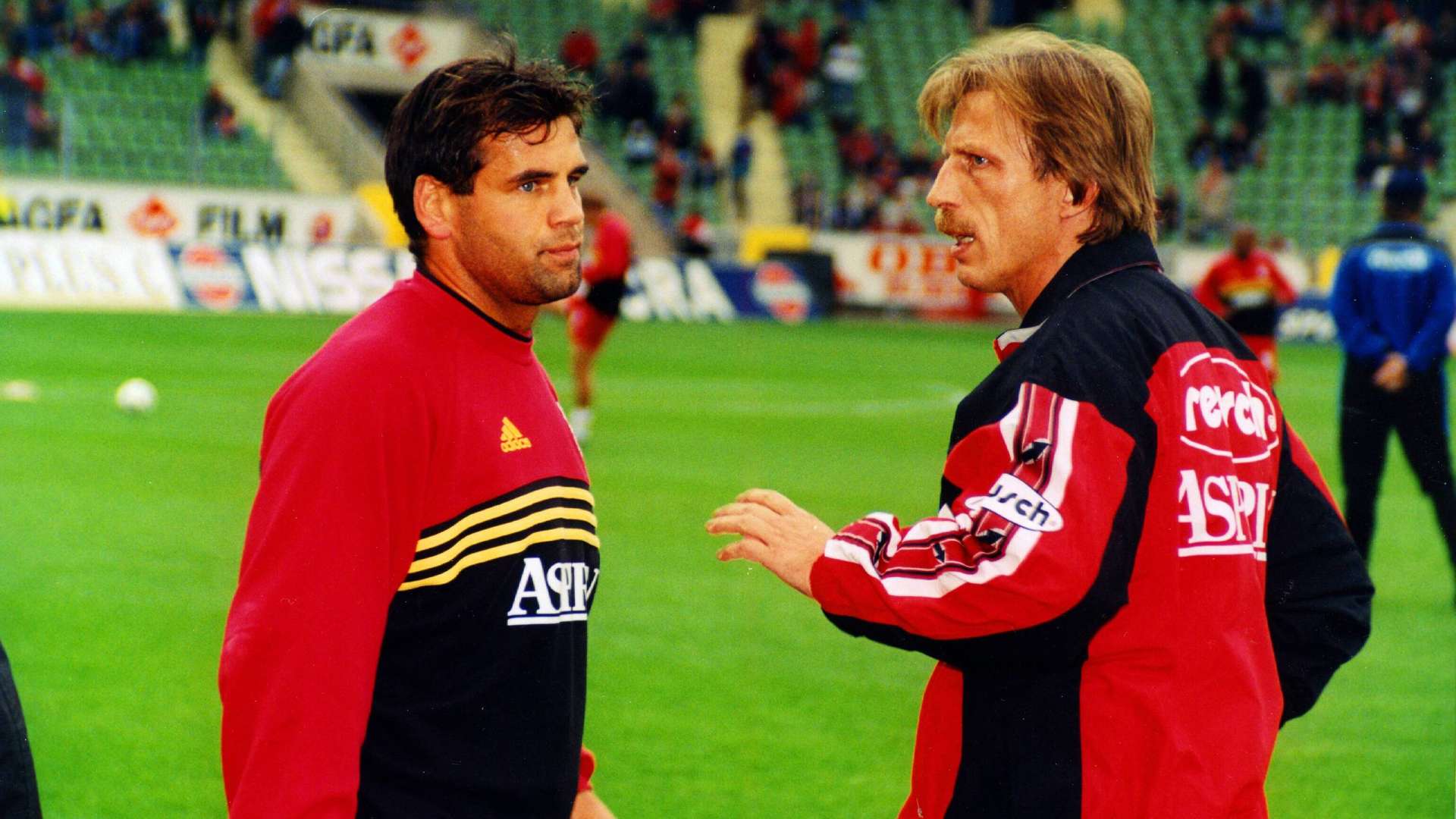
Back in the day, you would have liked to have someone like Daum as a teacher at school. His enthusiasm was infectious as you felt he was so fired up with his subject. Because he conveyed so much passion, so much conviction, so much energy in his vivid language that everyone understood and he took everyone with him. His metaphors were not always original but they still grabbed you because Daum was a convincing speaker with his great sense of – sometimes coarse– humour. A Pied Piper par excellence. If he made his players at Leverkusen dance on hot coals than the big motivator would have become the guru. Daum admitted in his characteristic style: “It always annoyed me a little to be reduced to that as I would definitely not have ended up in the Bundesliga if I couldn’t differentiate a back four from a bicycle chain.”
On the other hand, he quite liked being in the “role of the slightly mad coach who was swimming against the current and always had an apposite phrase to hand.” Daum was happy to use this cliche but he also saw the dilemma. “As Felix Magath is still seen as a slave driver and I was seen as a self-publicist. My biggest problem was that I got lost in my roles – and let everybody get involved.”
The fighter Daum appeals to Bayer 04
Daum, patter-merchant and loudspeaker, who loved the limelight and provided the media with what they wanted to hear and see. His image was gone by the latest with the verbal duel in 1989 on the Aktuelles Sportstudio programme with Uli Hoeneß and Jupp Heynckes. The Express called Daum the “Cassius on the Rhine” alluding to Cassius Clay alias Muhammad Ali, who is not only famous as a great boxer but also for his big mouth.
At the same time, there was also the quiet, thoughtful, sensitive Daum who held his first exhibition as a talented painter at the age of 17 when he wanted to study art. He was not only a gifted narrator and entertainer but also an attentive listener. With many interests, curious, willing to learn. He always saw himself primarily as a fighter. Born in the Erz Mountains, Daum spent his childhood and teenage years in the Ruhr region. “The slight lad with thin arms” rolled up his sleeves in Duisburg-Beeck and happily helped out at home, half father and brother with hammering, screwing and welding. He started playing football with DJK Viktoria Beeck, training on shale pitches. He then moved on to Eintracht Duisburg where he was a defender renowned for snapping at heels and came to the attention of Bayer 04 Leverkusen in 1975. The club had just been promoted to the second division and the invited Daum to attend a trial. “I did well and dealt with their best striker but soon after that they rejected me and signed Walter Posner from Borussia Mönchengladbach,” recalled Daum. Bayer only wanted him for the second team. Daum was hopping mad. “I didn’t want to have anything more to do with this club.”
His irritation was long gone 21 years later when Daum was a sought-after coach. He was considered to be a perfectionist with a demanding attitude and an “almost self-destructive ambition,” as he admits. He was a hard worker who knew very well that he sometimes went beyond the target. As he did in a difficult private situation in 1998 that he wrote about criticising himself in his biography: “I was amongst the first on the training ground at Leverkusen at 8.45 in the morning and back in the hotel at the earliest by ten in the evening and if I worked that hard then my players should do the same. Or they should at least produce decent results. I only noticed much later some of the nonsense I was saying. Players have to be able to trust their coach and I went about this mutual trust with a wrecking ball.”
Leverkusen is 'Daum town'
Christoph Daum led Bayer 04 to three runners-up finishes and three UEFA Champions League campaigns in his four years under the Cross. On top of that, there was a third place in 1997/98. To date he has the best record of a coach at Leverkusen with 76 wins, 44 draws and 24 defeats in 144 Bundesliga fixtures. It is no surprise that the Werkself clocked up the biggest wins in the club’s history under him as coach with 9-1 at SSV Ulm 1846 and the 8-2 at Borussia Mönchengladbach. Players like Jens Nowotny, Carsten Ramelow, Emerson, Zé Roberto and Michael Ballack developed into national and world class players under Daum. The fans worshipped him and there were stickers on street signs in 1999 reading ‘Daum town’. 20 years later, they voted the former FC Köln man the most popular coach in Bayer 04’s time in the Bundesliga.
Christoph Daum was celebrated as a superstar in Leverkusen. He also suffered his most painful defeat here, the 2-0 reverse in Unterhaching that saw Bayer 04 squandering the chance to win the league on the final day of the season in 1999/2000. He cried his eyes out after the game along with his then 13-year-old son Marcel who today works as an analysis assistant coach at Bayer 04. But he soon got over the deep disappointment.
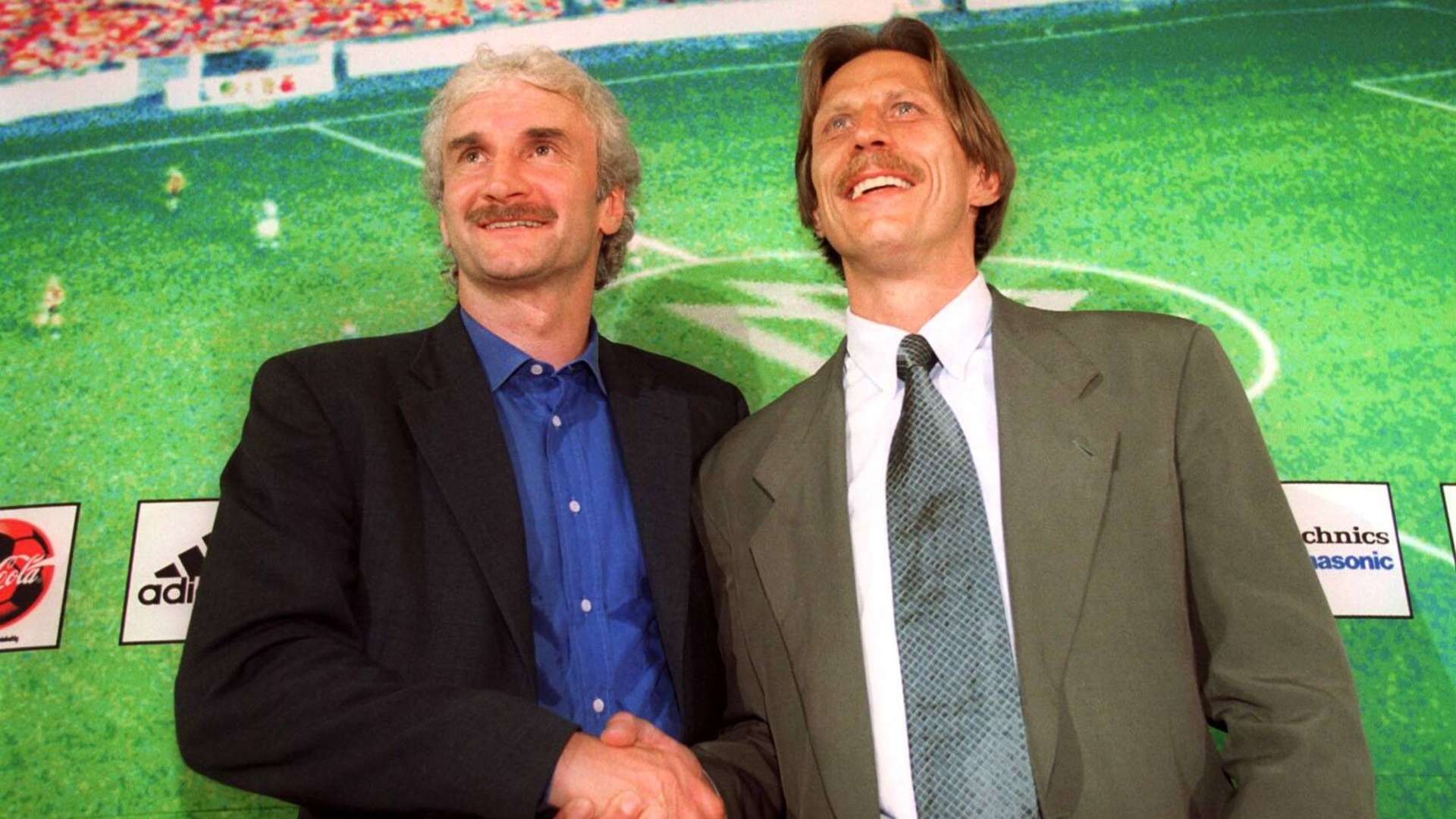
Just six weeks later Daum had achieved the target of all dreams. He was to be the Germany coach and take over the languishing national team. On 2 July 2000, everybody with a say in German football gathered at the Villa Himmelseher near Cologne: DFB president Gerhard Mayer-Vorfelder, Franz Beckenbauer, Karl-Heinz Rummenigge, Uli Hoeneß, Reiner Calmund, Rudi Völler and, of course, Christoph Daum. As Bayer 04 did not release him immediately, Völler was to take over for one year as a temporary solution. Daum would then take over. He had mastered the Mount Olympus in football. He even had the strong backing of Hoeneß. But it all ended badly. The dream was extinguished three months later by a positive hair test. The tabloid press were onto him again.
"Thats's what you call a life"
The cocaine affair cost him his job at Leverkusen – and obviously also with the German Football Association. Daum calls his drug habit the biggest mistake of his life. “That affair is like a scar you carry around with you. It heals but always remains visible to you,” he recently admitted in an interview in the Express. This most difficult phase of his career takes up 50 pages in his autobiography. It is an open and intensive appraisal where Daum takes himself to task. In a documentary to be broadcast by Sky on 27 October, Daum makes a moving statement looking back at that time: “Obviously, I would have been glad to leave certain things out but they are part of my CV – that’s what you call a life.”
His life has now confronted him with a new challenge for over a year. Christoph Daum has been very open about suffering with lung cancer. He isn’t allowing himself to be brought down by it. “I have an uninvited guest in my body who I permanently have to battle. I’m standing up to it and will drive it out or at least limit it so we can live with each other.”
Bayer 04 wish you, dear Christoph, great strength and many happy returns on your 70th birthday.
Related News
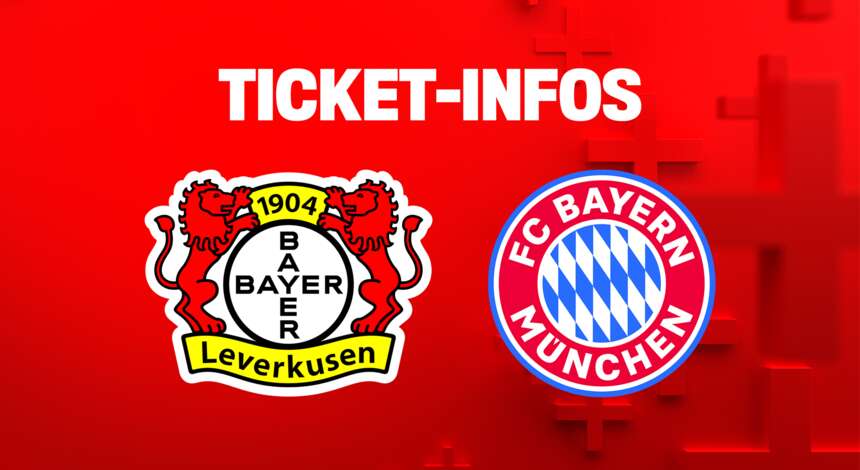
Tickets for the home game against Bayern Munich
The Werkself host Bayern Munich at the BayArena on matchday 26 in the 2025/26 Bundesliga season. The match is on Saturday, 14 March, with the kick-off at 15:30 CET. Information on ticket sales.
Show more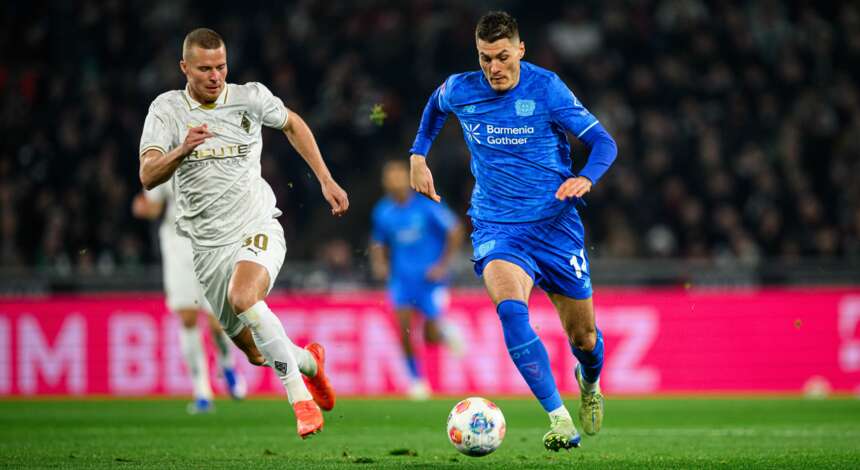
Werkself’s winning run ends with 1-1 draw in Mönchengladbach
Bayer 04’s four-game winning run in all competitions came to an end with a 1-1 draw away at Borussia Mönchengladbach on Bundesliga Matchday 21. Yannik Engelhardt scored early for the hosts, but an own goal from Philipp Sander brought the Werkself back level before the break.
Show more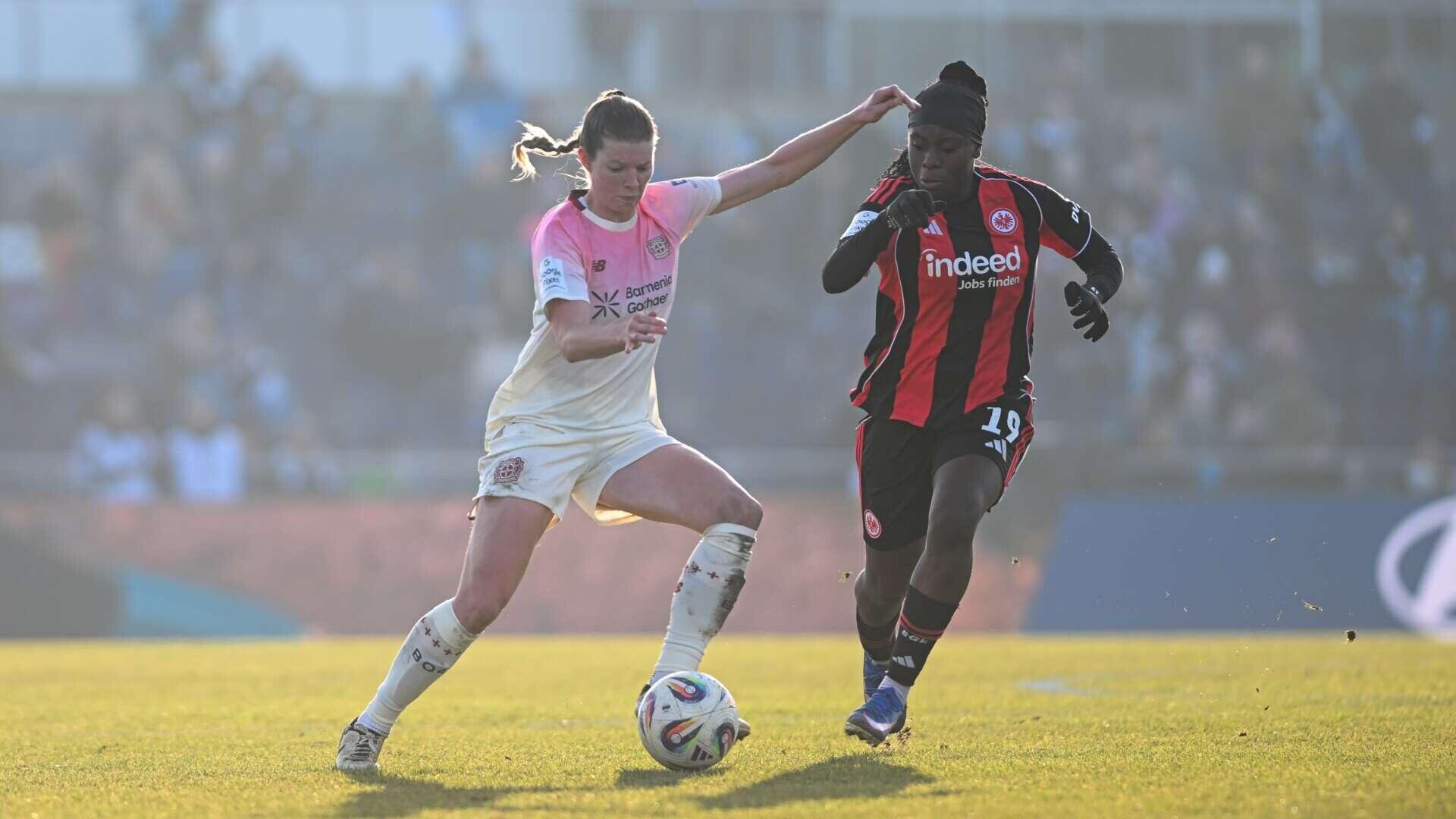
Women: TV-highlights of 0-1 loss at Eintracht Frankfurt
Werkself-TV shows the highlights of the Bayer 04 women's 0-1 loss at Eintracht Frankfurt on the 17th matchday of the Google Pixel Frauen-Bundesliga 2025/26.
Show more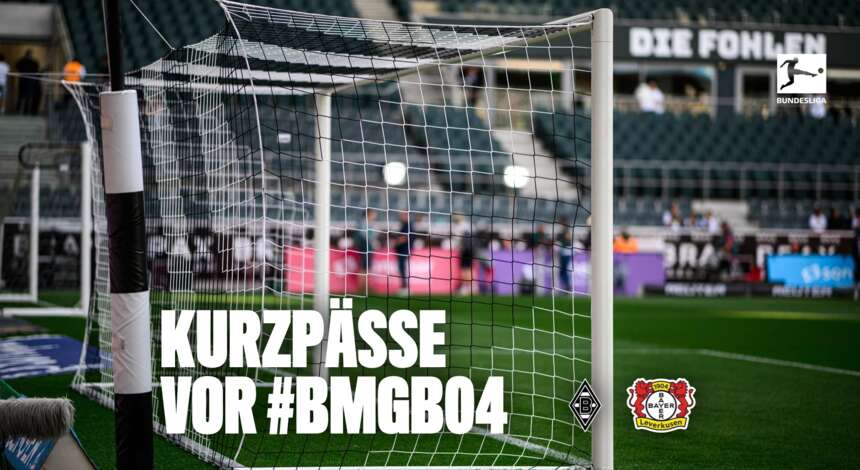
Matchday news #BMGB04: Two records in sight at Borussia-Park
Bayer 04 have a score to settle with Borussia Mönchengladbach after their late equaliser in the reverse fixture. But it’s been a while since the points were shared in this fixture at Borussia-Park, where the Werkself have won their last six visits – their best run ever away at a team in the Bundesliga. Victory in Saturday evening’s game (18:30 CET) would also be the team’s fifth in a row in all competitions and their best run this season, while Gladbach are only just above the bottom three after going four games without a win. Here’s all you need to know ahead of the evening’s encounter in our matchday news.
Show more